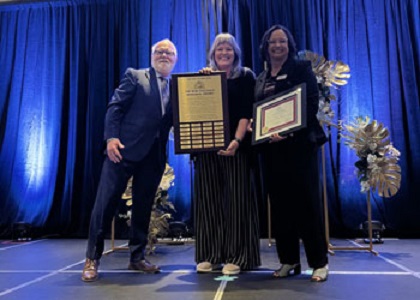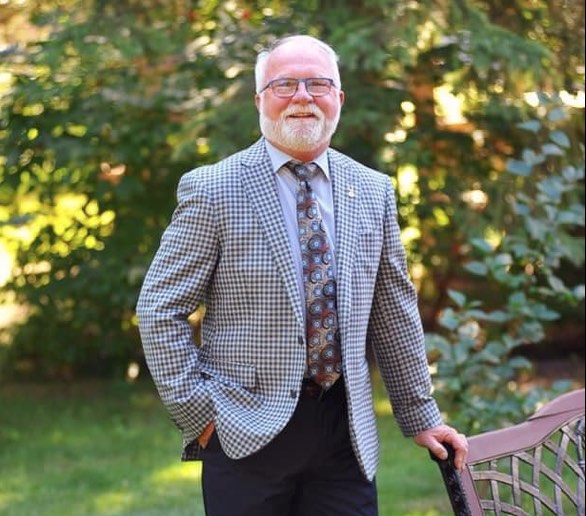City of Red Deer
City introduces new phone number to report non-emergency mental health, addiction, or homeless issues

New streamlined way to reach Red Deer’s Social Diversion Team
Since launching in 2021, the Social Diversion Team (SDT) has been responding to calls throughout Red Deer for individuals in need of non-emergency support, whether experiencing mental health struggles, addictions issues, or homelessness.
Beginning March 1, 2024, the community will need to call the non-emergency police line at 403-406-2200 to connect with the Social Diversion Team. This move from the previous 2-1-1 call line will improve the caller’s ability to quickly connect with a Police Communications Operator who can quickly determine the nature of the call and dispatch the appropriate resources in a timely and efficient manner.
“This change simplifies calling and dispatching the Social Diversion Team,” said Peter Puszka, Municipal Policing Services Superintendent. “Red Deerians now need to remember only one contact number for all non-emergency community safety concerns and our experienced, well-trained Police Communications Operators can assess the circumstances of the call, determine which resource is appropriate and dispatch accordingly.”
Though the Alberta 2-1-1 has been the dispatching service since the onset of the program, the move to internal dispatching will simplify the call-in process, removing barriers like pre-recorded messaging and on-hold wait times, improve internal communication between the dispatchers and the responding Social Diversion Team, and allow for operators with local community knowledge to provide enhanced response.
While the phone number has changed, all other elements of the program remain the same. The two-person Social Diversion Team consists of a Licensed Practical Nurse and a Social Diversion Specialist, who respond to reports of individuals in distress. The team connects clients with the social services they need, such as housing supports, mental health supports, detox programs and harm reduction resources.
“We are excited to continue providing individuals with the right response at the right time,” says Ryan Veldkamp, Social Wellness & Integration Supports Superintendent. “We know that not every call is an emergency call, and that’s why the Social Diversion Team is the right choice for these situations where individuals are in crisis. The team continues to allow our first responders to concentrate on responding to critical medical emergencies and criminal matters.”
In its three years of operation, the SDT has averaged a response rate of 185 events per month or approximately 6 calls a day. The teams use their specialized training to provide assessment, intervention and support to those in need.
Stephanie MacDonald, Outreach and Housing Services Manager for Safe Harbour Society said, “The Social Diversion Team is very excited for this change over and believes that this will allow for a more effective and timely response.”
While the SDT continues to operate from 7 a.m. to 7 p.m., 7 days a week, the 24/7 non-
emergency line will dispatch the SDT based on their availability, or utilize other policing and medical services when they are not.
To learn more about the Social Diversion Team, visit www.reddeer.ca/SDT.
When Should I call the Social Diversion Team?
If you see someone who is:
- Experiencing a mental health or medical (non-emergency) crisis
- Intoxicated or otherwise impaired
- Requiring transport to appropriate services (i.e. a shelter)
- Sleeping in an unsafe space and/or inappropriately dressed for the weather
- Requiring social services (i.e. housing, nutrition, health or community supports)
- Likely to come to harm without intervention
And the individual is not posing an immediate harm to themselves or others, call 403-406-2200
The team’s hours of operation are 7 a.m. to 7 p.m. However, the non-emergency (403-406-2200) line is operated 24/7. Outside of the Social Diversion team operating hours, callers will be provided with either a community referral, crisis intervention support, connected to 911, or offered a follow-up.
City of Red Deer
City of Red Deer Employee Honoured with Bob Stollings Memorial Award for Outstanding Contributions

Annette Scheper, Community & Program Facilitator in the Safe & Healthy Communities Department is The City’s 2025 recipient of the Bob Stollings Memorial Award.
The Bob Stollings Memorial Award is given out each year to a City employee who displays outstanding performance in alignment with The City’s RISE cornerstone values – respect, integrity, service and excellence. Nominations for the award are submitted by fellow coworkers detailing the employee’s achievements professionally and interpersonally, along with letters of support. The award is considered a great honour among City staff.
With an impressive 22-year career, Annette has played a pivotal role in shaping Red Deer’s cultural and special events landscape. Her leadership and innovation have brought thousands of successful events to life, creating lasting traditions that enrich the lives of residents. Her commitment to excellence and resourcefulness has ensured that community initiatives are inclusive, accessible, and impactful.
One of Annette’s most notable achievements is the development of the Community Loan Program, which provides essential resources for local groups, contributing an annual value of $86,778.95 back into the community. In addition, she has successfully led and executed a variety of large-scale events, demonstrating remarkable problem-solving skills and a dedication to sustainability. From creating elaborate event designs with repurposed materials to managing complex logistics, she continuously sets the standard for excellence.
“Annette exemplifies the best of our organization,” said City Manager, Tara Lodewyk. “Her unwavering dedication, innovative thinking, and ability to bring people together has made a profound impact on our city. This award is a testament to her hard work and passion for creating meaningful experiences for our community.”
The Bob Stollings Memorial Award was first established in 1985 and is presented every year to honour Robert (Bob) E. Stollings, a loyal and dedicated City employee from 1960-1984.
City of Red Deer
Red Deer will choose a new Mayor as Ken Johnston decides to step away

It’s a telling detail about the person who leads Red Deer City Council. Always putting the city’s needs ahead of his own, Mayor Ken Johnston has announced his intentions within days of the opening of Nominations for October’s municipal elections,
After 12 years on council, Mayor Ken Johnston has decided against running for a second term as Mayor this fall. Johnson shared his decision in front of colleagues and supporters in a touching announcement on Wednesday.
At 71 years old, Johnston remains vibrant, passionate and healthy. He says that’s exactly why he and his wife Carolyn have decided now is the right time to start their next stage of life together.
Mayor Johnston listed a number of highlights and achievements he can look back on, including his help advocating for the redevelopment of Red Deer Regional Hospital, the growth of Red Deer Polytechnic, and positive moves in Economic Development.
All these lead of a feeling of ease about the decision to step away, though affordable housing and a permanent shelter for the homeless remain pressing concerns.
With about 8 months remaining in his term, Mayor Johnston is planning to push hard to move the needle on these housing issues.
“We’re looking forward to some more work and we’ll be going to the community shortly about it. So I still have optimism that maybe before the term is out we can have an announcement.”
This is the second major political announcement in Central Alberta in the last number of days. Earlier this week Red Deer Mountain View MP Earl Dreeshen announced he won’t be running in the next federal election.
-

 Business1 day ago
Business1 day agoChina, Mexico, Canada Flagged in $1.4 Billion Fentanyl Trade by U.S. Financial Watchdog
-

 2025 Federal Election2 days ago
2025 Federal Election2 days agoTucker Carlson Interviews Maxime Bernier: Trump’s Tariffs, Mass Immigration, and the Oncoming Canadian Revolution
-

 Business2 days ago
Business2 days agoDOGE Is Ending The ‘Eternal Life’ Of Government
-

 espionage2 days ago
espionage2 days agoEx-NYPD Cop Jailed in Beijing’s Transnational Repatriation Plot, Canada Remains Soft Target
-

 2025 Federal Election1 day ago
2025 Federal Election1 day agoBREAKING from THE BUREAU: Pro-Beijing Group That Pushed Erin O’Toole’s Exit Warns Chinese Canadians to “Vote Carefully”
-

 2025 Federal Election2 days ago
2025 Federal Election2 days agoCanada drops retaliatory tariffs on automakers, pauses other tariffs
-

 Daily Caller1 day ago
Daily Caller1 day agoDOJ Releases Dossier Of Deported Maryland Man’s Alleged MS-13 Gang Ties
-

 Daily Caller1 day ago
Daily Caller1 day agoTrump Executive Orders ensure ‘Beautiful Clean’ Affordable Coal will continue to bolster US energy grid





